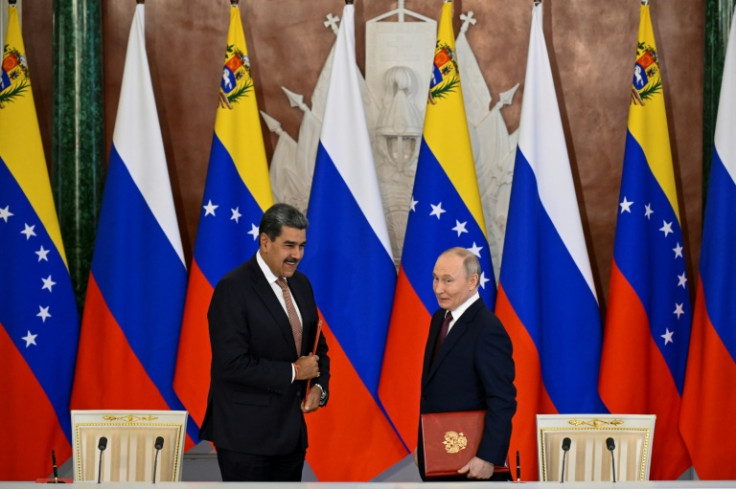Opposition Vows Boycott As Venezuela Holds Divisive New Vote

Can Venezuelans be persuaded to return to the polls on Sunday, 10 months after President Nicolas Maduro claimed a third term in elections marred by violence and allegations of fraud?
The issue of voter participation is the big unknown as the sanctions-hit Caribbean country returns to the polls to elect a new parliament and 24 state governors.
The main opposition led by Maria Corina Machado, an engineer and former MP, has urged Venezuelans not to legitimize what they see as yet another sham election by voting.
A small opposition faction led by two-time former presidential candidate Henrique Capriles rejected the boycott call, arguing that previous voter stayaways had merely allowed 62-year-old Maduro to expand his grip on power.
"We must vote as an act of resistance, of struggle," said Capriles, who is running for parliament.
Tensions were high in the run-up to the election.
More than 400,000 security agents were deployed to monitor the vote.
On Friday, a leading opposition member and close ally of Machado, Juan Pablo Guanipa, was arrested on charges of heading a "terrorist network" planning to attack Sunday's vote.
Interior Minister Diosdado Cabello linked Guanipa, a former MP, to a group of 50 people arrested earlier in the week on suspicion of being mercenaries in the pay of foreign powers.
Venezuela, which frequently alleges foreign-backed coup plots, said the suspects entered the country from Colombia and closed the busy border with its neighbor until after the election.
Guanipa is just the latest opposition leader to be targeted by the authorities.
Opposition presidential candidate Edmundo Gonzalez Urrutia went into exile in Spain last year after a bounty was put on his head.
A message on Guanipa's X account, shortly after his arrest, declared he had been "kidnapped by the forces of Nicolas Maduro's regime" but would continue the "long fight against the dictatorship."
Many opposition supporters in Venezuela lost any remaining faith they had in the electoral process after the July presidential election.
Maduro claimed to have won a third term, without producing detailed results to back his claim.
The opposition published its own tally of results from polling stations, which appeared to showed a convincing win for Gonzalez Urrutia.
A deadly crackdown on protests that erupted over Maduro's victory claim cemented Venezuela's pariah status on the world stage.
Only a handful of countries, including longtime allies Russia and Cuba, have recognized Maduro as the country's rightful leader.
Sunday's election comes as the country's economy -- once the envy of Latin America, now in tatters after years of mismanagement and sanctions -- faces even further turmoil.
US President Donald Trump has revoked permission for oil giant Chevron to continue pumping Venezuelan crude, potentially depriving Maduro's administration of its last lifeline.
Washington has also revoked deportation protection from 350,000 Venezuelan migrants in the United States and expelled hundreds of others to a brutal prison for gangsters in El Salvador.
The pressure has failed to sway Maduro, who continues to defy the world and spar with his neighbors.
On Sunday, Venezuela will for the first time hold elections for parliament and state governor in the disputed oil-rich region of Essequibo, on its border with Guyana.
Guyana has administered the region for decades but Caracas has threatened to partially annex it.

© Copyright AFP 2024. All rights reserved.





















